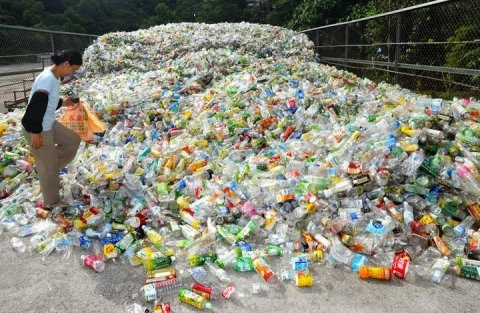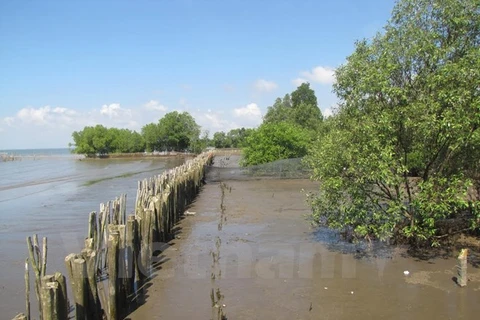Can Tho (VNA) – Localities in the Mekong Delta have taken a series of measures to adapt to climate change, which causes serious impacts on the livelihood of the region’s communities.
Local farmers have been shifting the structure of their crops and domestic animals, and improving the value of farm products by developing new production models, and applying science and advanced technologies to create higher value products.
A club for decorative shaped fruit production in Hau Giang province’s Chau Thanh district is a prominent example. The fruit’s shapes increase their value by seven or eight times.
It supplies thousands of grapefruits with various decorative shapes at a minimum price of 300,000 VND each to the market every lunar year (Tet) festival.
The Thanh Phuoc agricultural co-operative in the locality has also performed well. It has succeeded in planting seedless lemons over the last decade.
According to the Director of the co-operative Nguyen Van Chien, seedless lemon cultivation suits the changeable weather in the region. It becomes a sustainable livelihood for local poor families.
Nguyen Thi Kieu, Deputy Director of Can Tho’s Department of Agriculture and Rural Development, said the locality’s farmers were instructed to convert their agriculture production into more efficient models.
Can Tho aims to increase production of seed rice and other farm products such as sesame, soybean and corn, while reducing the cultivation area of ineffective crops, she said.
Statistics show that over 62 percent of the Mekong Delta’s population is operating in the agro-forestry-aquaculture sector, which is a major livelihood for regional residents.
It is estimated that the Mekong Delta contributes roughly 50 percent of the country’s total food output and over 90 percent of rice exports every year. Aquaculture accounts for over 60 percent of output and 80 percent of export, while the livestock industry brings the country 1.5 to 2 billion USD per year.
However, the region is coping with serious impacts from climate change, which has gradually affected the region in many ways, including hurting local incomes.
The situation requires close cooperation between regional authorities and more support to stabilise production for export. They also need to promote agricultural and rural service development, and ensure national food security.-VNA























